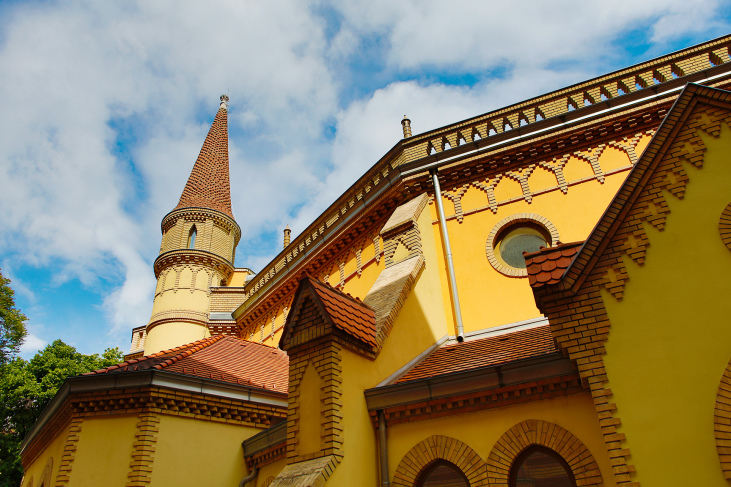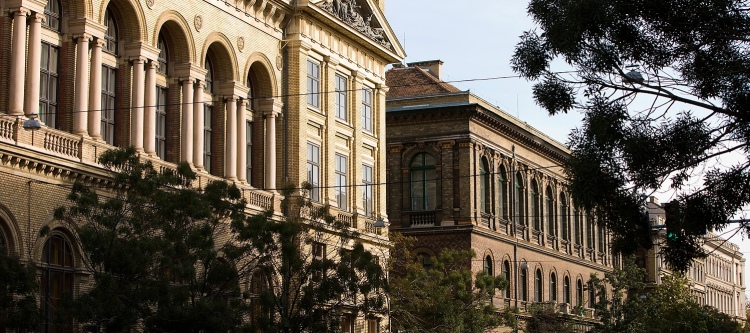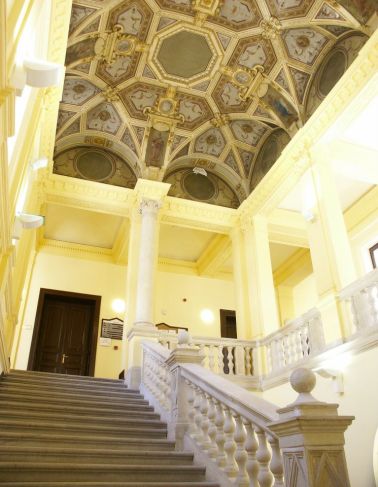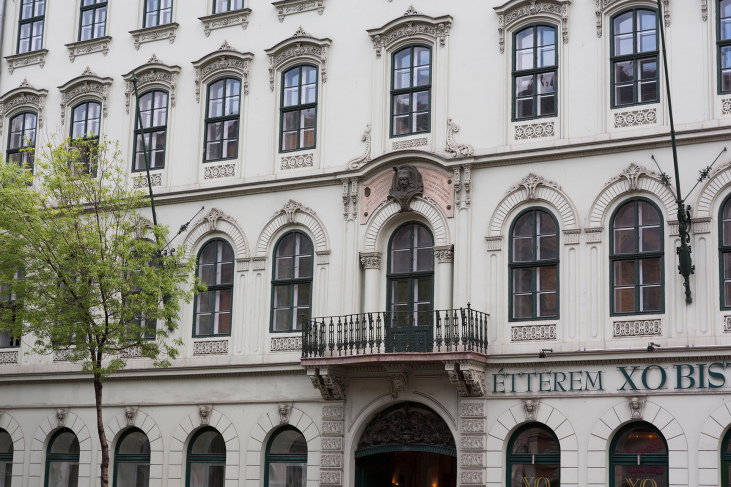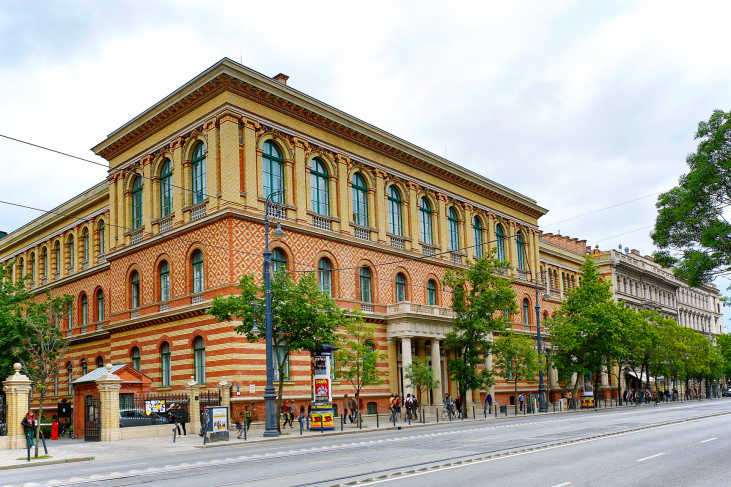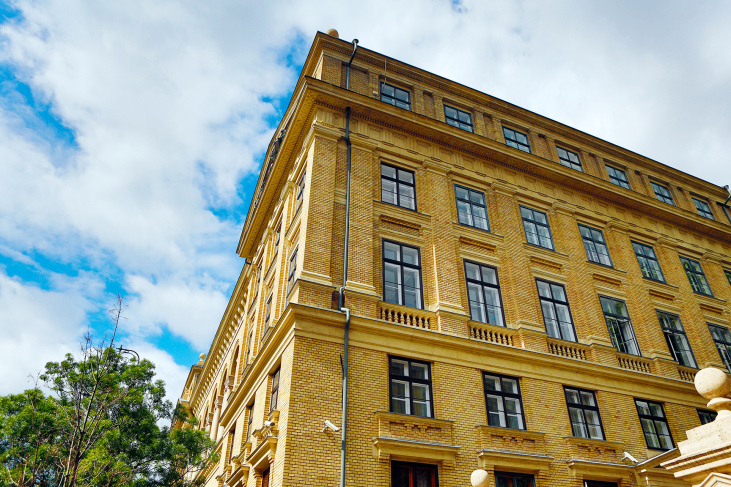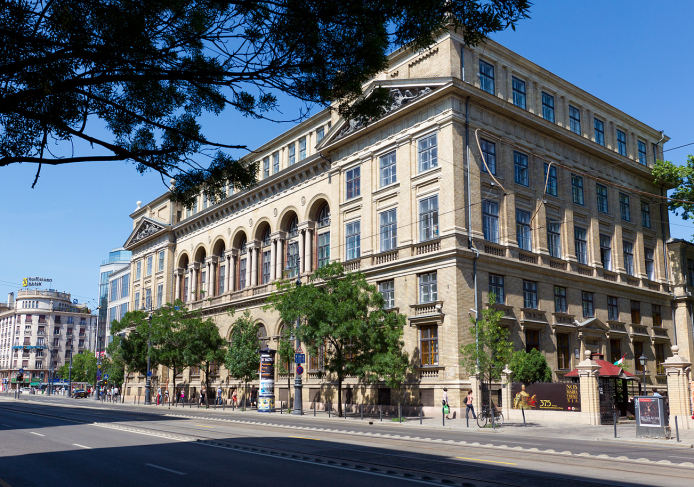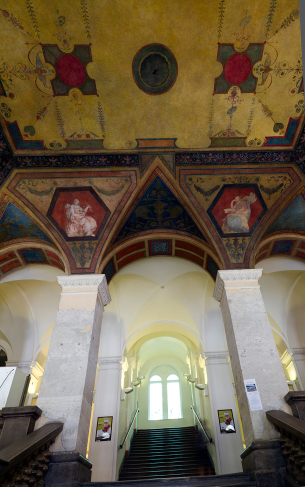Film Studies MA
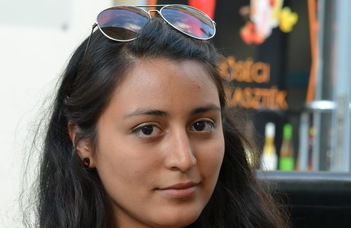
Colombia

India
Film Studies MA
Expert in Film Studies
Degree program
Master
OH-FIF/482-4/2011.
English
4 semesters (2 years)
120
2
30
The Institute for Art Theory and Media Studies at ELTE is currently the only higher institution of education in Hungary to offer an English-language MA degree in Film Studies.
The MA program runs with two specializations.
The Film Theory specialization offers a general overview of the history and theory of film, as well as critical understanding of the mechanisms and genres of popular film culture, with an emphasis on academic and critical writing. Students become familiar with the different periods of Hungarian and world film history, the different theoretical approaches of film studies and filmic genres, and develop their skills of reading theoretical texts and interpreting films.
The Filmmaking specialization allows students to get hands-on experience in the various creative areas of production process (screenwriting, directing, editing, cinematography, production), and produce a collaborative thesis project.
In both specialization, students develop thesis projects (academic and creative) through consultation sessions with assigned advisers.
The Institute for Art Theory and Media Studies at ELTE was one of the first higher institutions of education in Hungary to offer a degree in Film Studies. Part of the prestigious Institute for Art Theory and Media Studies, the Department of Film Studies has been hosting various undergraduate, graduate and postgraduate programs since the 1990s. The faculty members are highly acknowledged experts in film studies, specialists of their chosen fields and take part in international and local research projects.
They regularly organise conferences, workshops and screenings on a wide array of topical phenomena in past and contemporary film culture. Students play an important role in initiating and organising these events. The department has brought to life and operates a unique research group on Hungarian film history and has a major share in publications in this field. Faculty members act as editors of different film journals serve as members of jury for film festivals and film boards. Our filmmaking courses are taught by acknowledged professionals of the film industry. The department cooperates with different international film organisations and has Erasmus+ cooperation contracts with about a dozen of institutions all over Europe.
In the department, students are admitted either to a Filmmaking Specialization or to a Film Theory Specialization. In both students are assigned a departmental tutor, who oversees the creative or academic project they produce throughout the four semesters.
On top of fulfilling the 120-credit requirement for graduation during the 4 semesters, students:
In the Filmmaking Specialization write a brief academic paper (2nd semester) before they start to work on their creative project in cooperation with the tutor
In the Film Theory Specialization take Research Methodology (2nd semester) and Academic Writing (3rd semester) classes and work on their academic project in cooperation with their tutor
More information about the structure of the program can be found at:
Besides academia, the program prepares students for jobs in various branches of the cultural/entertainment sector. Our graduates pursue an academic career or find different opportunities in the media and film industry. Students of the Film Theory specialization acquire the skills and knowledge which allow them to become academic researchers or apply for a PhD program, either to the Film, Media, and Contemporary Culture PhD program hosted by our institute or to programs in other institutions. Our graduates are equally well-qualified to work as film and communication teachers, film critics, experts, and many of them hold a post in film and media archives or different national institutions and boards. Students of the filmmaking specialization have the skills to realize different products in the moving image industry, such as music videos, commercials, video blogs, short feature films etc. They can work for film production companies and they are able to act as distribution and exhibition executives.
Film- and communication teachers, film-critics, editors, experts, positions at film and media archives or different national institutions and boards, line producers, screenwriters, cameramans.
3,500 EUR
3,500 EUR
The application fee is discounted for Early Bird applicants: EUR 100 (non-refundable) between 01/11/2024 - 30/11/2024 and between 01/02/2025 - 31/03/2025; The regular application fee is: EUR 150 (non-refundable) between 01/04/2025-31/05/2025
The application fee is discounted for Early Bird applicants: EUR 100 (non-refundable) between 01/11/2024 - 30/11/2024 and between 01/02/2025 - 31/03/2025; The regular application fee is: EUR 150 (non-refundable) between 01/04/2025-31/05/2025
100 EUR (Entrance exam fee)
100 EUR (Entrance exam fee)
3,500 EUR
The application fee is discounted for Early Bird applicants: EUR 100 (non-refundable) between 01/11/2024 - 30/11/2024 and between 01/02/2025 - 31/03/2025; The regular application fee is: EUR 150 (non-refundable) between 01/04/2025-31/05/2025
100 EUR (Entrance exam fee)
Yes
01, Sep, 2025
31, May, 2025
No
Entry requirements
Applicants must hold a university bachelor’s degree (or an equivalent college degree) in the fields listed below. Full credit acknowledgement is only given for a BA degree in Liberal Arts, Motion Pictures Studies and Visual Representation Studies with Motion Pictures Culture and Media Expert Specialization.
In the case of a BA degree from any other study fields, each degree will be considered individually, and transcripts from your diploma as well as course descriptions will be requested. The applicant must have 50 credits (at least 30 to enter the programme) from the fields of film history, film theory, motion-picture creating, film studies, philosophy, literature theory, history of social sciences, history and theory of art and theory culture.
The educational and outcome requirements are defined by the Ministry of Human Capacities, Regulation No. 18/2016. (VIII. 5.). Details of the application and admission process are defined by the Organisational and Operational Regulations of ELTE.
Applicants to the (1) Film Theory specialization have to submit a brief research proposal, which outlines the research project they intend to realize throughout the program; (2) Filmmaking specialization have to send with the rest of their application materials a link to their online portfolio, which includes samples of their previous creative projects (still or moving images, other digital media products, screenwriting sample etc).
Language requirements
The language of instruction is English. Non-native speakers of English must demonstrate a very good level of English-language skills.
- TOEFL PBT (Paper-based test): 516-554
- TOEFL IBT (Internet-based test): 66-82
- TOEFL IBT Home Edition: 66-82
- IELTS (International English Language Testing System): 6.0
- CEFR (Common European Framework of Reference): B2
- Duolingo: 85
|
Document |
Comment |
|---|---|
|
- |
|
|
Secondary school certificate (graduation certificate) |
Notarized copy only on request. |
|
Bachelor-level degree |
An official copy of your completed Bachelor degree |
|
Transcript of records |
|
|
CV |
In English, in MS Word format with one low resolution photo |
|
Motivation letter |
A maximum of 500 words. |
|
Research work plan (FOR FILM THEORY SPECIALIZATION) |
Applicants for the Film Theory specialization have to submit a brief research proposal, |
|
Copy of the main pages of the passport |
Scanned, in colour all personal details and expiry date must be shown. Passport must be valid. |
|
Copy of application fee transfer |
|
|
Copy of the Entrance exam fee transfer |
|
|
Reference work (FOR FILMMAKING SPECIALIZATION) |
Applicants for the Filmmaking specialization have to send with the rest of their application materials a link to their online portfolio, which includes samples of their previous creative projects (still or moving images, other digital media products, screenwriting sample etc). |
|
Language certificate |
Official test result or certificate must be provided; |
|
Other: An official English translation of the certificates and the records if the language of the original is not English |
Optional documents for admissions
- Letter of Reference: Also called “Letter of recommendation”: From a former instructor and/or employer
Application deadlines
The deadline for application means the deadline of submission of the full and complete application package in the online system.
Period 1 (with Early Bird discount): 01/11-30/11/2024 23:59 (CET)
Period 2 (with Early Bird discount): 01/02-31/03/2025 23:59 (CET)
Period 3: 01/04-31/05/2025 23:59 (CET)
The application procedure includes 3 periods in order to give the applicants the freedom to submit their application when it’s most suitable for them. The applicants of each period have the same chance to get admittance for the programme. However, please note, that the Faculty of Humanities ELTE reserves the right to cancel the entrance periods in case the number of the admitted applicants reaches the limit during the previous entrance periods.
Procedure of the application
The application starts in the online application system. Students need to register in the system, fill in the online application form, upload the required documents and follow the instructions during the application process.
Applications will only be processed if the application fee (100 EUR or 150 EUR depending on application period; non-refundable) has been transferred to the Faculty’s bank account.
For further information and details about transferring the application fee please visit our Faculty’s website: https://btk.elte.hu/prospective-students-financial-issues
BANK ACCOUNT DETAILS OF OUR UNIVERSITY
IBAN Bank Account: HU 03 1003 2000 0142 6201 0000 0000
BIC/SWIFT code: HUSTHUHB
Name of the University: EÖTVÖS LORÁND UNIVERSITY, ELTE BTK
Address: 1088 Budapest, Múzeum krt. 4/a, Hungary
Name of the Bank: Hungarian State Treasury Ltd. (Magyar Államkincstár)
Address of the Bank: 1139 Budapest, Váci út 71.
PLEASE DO NOT MISS TO ADD IN THE MESSAGE SECTION:
Name of applicant
AY (for example: 2025/26/1)
The University’s sub-account number: AC9202/04
Entrance examination and selection process
When the university receives the full application package and it is checked by the Department of International Affairs an entrance exam date option will be sent no later than the application deadline for the relevant period. Please, check your messages in the application system, and the e-mail address that is linked to the account regularly. The applications are examined by the Admission Board no later than after each application period and applicants are notified of the outcome of the selection in the online application system after the decision is official. Admission letters are sent out in the online application system within a few days.
Procedure of the entrance examination
The entrance exam contains a discussion about the motivation of the applicant. Successful applicants must have a good command of English to pass the entrance exam. The format of the entrance exam is an online interview. Ranking is based on the overall evaluation of academic excellence (based on the submitted documents) and the results of the entrance exam.
András Bálint KOVÁCS
Head of Department of Film Studies
Admission
Department of International Affairs
E-mail: admission@btk.elte.hu
Address: 1088 Budapest, Múzeum krt. 4., Room 32
More information
Website
Film Studies
Film Studies
0
/
0















0
/
0

